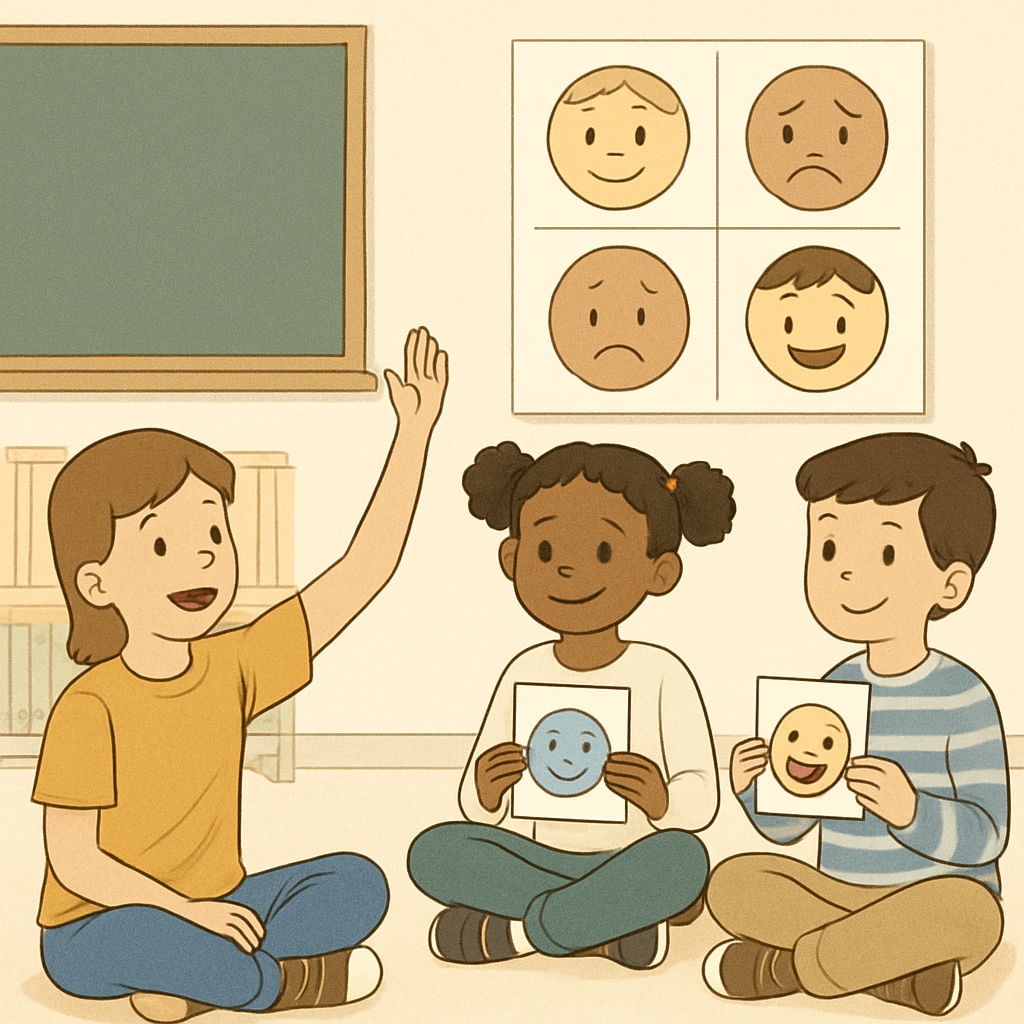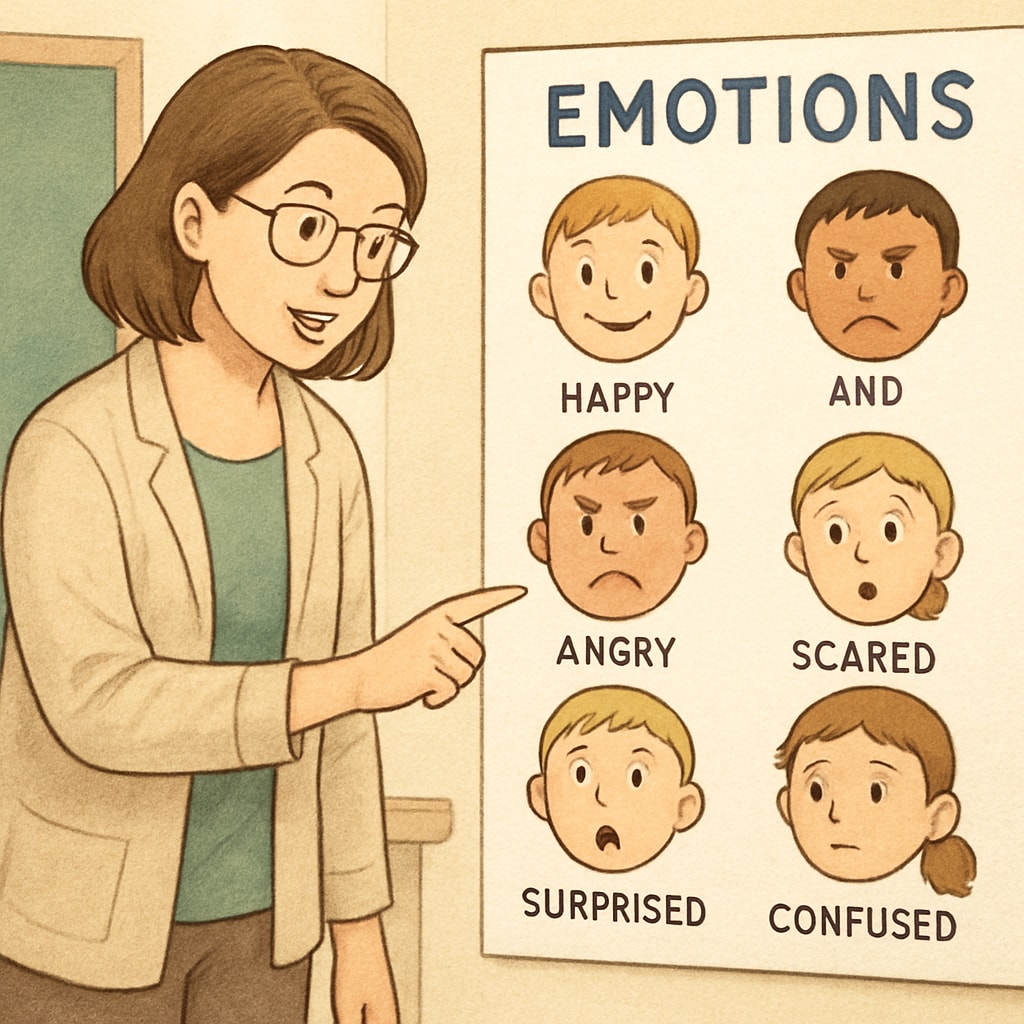Emotional education, child development, and emotional management are deeply interconnected aspects of raising well-rounded and happy children. Unlike academic skills, emotional intelligence is not innate—it requires systematic teaching and guidance. By introducing emotional education early, we help children learn to navigate their feelings, communicate effectively, and build meaningful relationships. These skills serve as the foundation for their overall well-being and long-term happiness.
The Importance of Emotional Education in Early Childhood
Emotional education is not just a supplementary part of a child’s upbringing; it is a fundamental aspect of their growth. Children are not born with the ability to manage their emotions effectively. Instead, they rely on parents, educators, and caregivers to guide them in recognizing, understanding, and expressing their feelings in a healthy way. Teaching emotional skills early leads to numerous benefits:
- Improved self-awareness and self-regulation
- Stronger social connections and empathy
- Reduced behavioral issues
- Higher academic achievement
For example, studies have shown that children who receive emotional education perform better in school and are more likely to succeed in their careers. They also tend to form healthier relationships as adults. Emotional intelligence is a skill that underpins all aspects of life, making its development in childhood incredibly important.

How Emotional Education Supports Healthy Child Development
Children who learn to manage their emotions are better equipped to handle the challenges of life. Emotional management involves recognizing emotions, understanding their impact, and responding appropriately. When children are taught these skills, they develop resilience and adaptability, which are critical for navigating an ever-changing world.
Moreover, emotional education fosters mental health by reducing anxiety and stress. By providing children with tools to express themselves, we help them avoid bottling up negative emotions, which can lead to long-term psychological issues. For instance, using techniques such as “emotion naming” or “mindful breathing” can help children calm down during stressful moments, enabling them to approach problems with clarity.
Beyond individual benefits, emotional education also impacts social development. Children who understand their emotions are more likely to empathize with others, leading to stronger friendships and a sense of community. As a result, they become compassionate and socially responsible adults.

Practical Tips for Parents and Educators
Incorporating emotional education into daily routines doesn’t have to be complicated. Here are some practical strategies for parents and educators:
- Model healthy emotional behavior: Children learn by observing adults. Demonstrating calmness and open communication encourages them to do the same.
- Encourage open dialogue: Create a safe space for children to share their feelings without fear of judgment.
- Use tools and resources: Emotion charts, books, and interactive games can make learning about emotions fun and engaging.
- Validate their feelings: Instead of dismissing or minimizing emotions, acknowledge and validate how they feel.
- Teach coping mechanisms: Introduce simple techniques like deep breathing, journaling, or physical activity to manage stress.
Parents and educators can also collaborate to ensure consistency in emotional education across home and school environments. This unified approach reinforces positive habits and deepens children’s understanding of emotional management.
Conclusion: Emotional Education as a Cornerstone of Future Success
Emotional education, child development, and emotional management are not just buzzwords—they are the building blocks of a fulfilling and successful life. By prioritizing emotional education, we empower children to navigate their world with confidence and compassion. The benefits extend far beyond childhood, shaping their ability to thrive as emotionally intelligent and socially responsible adults.
As parents, educators, and caregivers, it is our responsibility to equip children with the tools they need for emotional well-being. The investment in emotional education today will yield a happier, healthier, and more harmonious society tomorrow.
For further reading on emotional intelligence and its impact, visit Britannica’s article on emotional intelligence.
Readability guidance: Use short paragraphs and bulleted lists to summarize key points. Limit passive voice and long sentences. Distribute transition words evenly throughout the text (e.g., however, therefore, for example).


